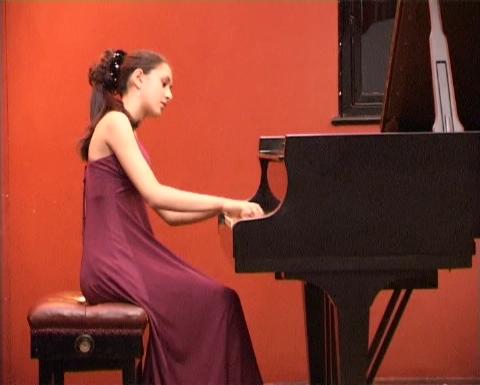|
<< -- 2 -- Malcolm Troup TRANSCENDENTAL UNIVERSALITY

As if to remind us of his cultural provenance from a land of thumb pianos and plucked lutes, he began by pairing off Haydn's quirky Fantasia in C major with the London première of Nigerian composer Joshua Uzoigwe's Lustra Variations (based on Igbo drumming) as illustrating the common ground shared by two composers whose isolation, the one in 18th century Esterhaz and the other in 20th century Oyo, had 'forced them to be original'. (Baroness Nicholson, who extended her late husband's Booker Prize for English fiction in the form of the 'Caine' Prize to encourage African literature, regretted that nothing similar existed to do the same for African art-music.) Kiwuwa's unerring time-sense was of the 'collective' kind which I remember admiring in a performance by Venda tribesmen of their 'tchikona' -- a sort of national anthem -- which required each man to come in with his individual 'note' at a specific time and place to keep the tribal texture intact and guarantee his place in the order of things. Every note in every tempo of the Beethoven Opus 110 and the Mendelssohn Variations serieuses had this sort of inevitability in Kiwuwa's playing but with no sacrifice of its inherent expressivity. With his life-giving touch and complete eschewal of fake nuances copied from dubious recordings, we listeners felt like the Viennese must have felt in Mahler's time when he swept away all the fussy accretions and excrescences of the 'drawing room' tradition of Mozart interpretation. It was an 'ear-cleaning' exercise in very sooth!

Mishka Momen
|
In the case of 14-year-old Mishka Momen, of Indian descent, who studies at the Purcell School with Ivana Davids and who, two years ago won the Leschetizky Prize in New York for her performance with orchestra there of Beethoven's Concerto No 3, it was rather the melting melodic inflections of a subjective time-frame born of centuries of an Indo-Aryan soloistic, when not chamber-music, tradition. From the outset she had us hanging on each note of her Bach Prelude and Fugue before weaving them together into an exquisite polyphonic line-drawing. Her slender arms belied the volume of sound which she was able to call forth in the resplendent climaxes of Liszt's Bénédiction de Dieu dans la Solitude and she rode fearlessly over all the treacherous trills and time-traps of Beethoven's Op 109 while never losing sight of the sublimity which lay at its core. Prodigious not only for her immaculate technique but for her even more precocious capacity to grasp the innermost spirit of the diversity of styles and periods which she made so effortlessly her own!
Continue >>
Copyright © 25 November 2006
Malcolm Troup, London UK

|

